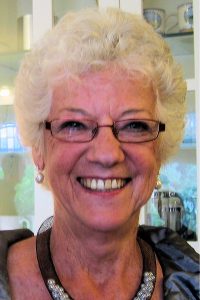Personal Stories
Jim and Ellie’s Story
 “I weep for any discomfort, loss of dignity and humanity experienced by Eleanor during those last few weeks of her life.”
“I weep for any discomfort, loss of dignity and humanity experienced by Eleanor during those last few weeks of her life.”
My wife, Eleanor, was diagnosed with pancreatic cancer on Thursday, February 29, 2024.
The surgeon who delivered this news to us described the grapefruit-sized tumour as “advanced, aggressive, inoperable and terminal”. After more scans and a biopsy (over the next two weeks), the diagnosis was confirmed, and the oncologist gave Eleanor a prognosis of 2 months. Eleanor died on Thursday, April 25, 2024, just eight weeks from her original diagnosis.
This is my story. I wish it could be Eleanor’s story, but we had so little time together after her diagnosis, we spent most of our time keeping her comfortable, awaiting the inevitable. We considered that we did not have enough time to go through the VAD process.
After the unexpected diagnosis, Eleanor’s GP immediately referred her to the Bellarine Community Palliative Care Unit for her at-home care. She also prescribed medication for pain, constipation and agitation. We found it very difficult to balance these oral medications in the early stages of her care and it was necessary on two occasions to seek medical intervention at the local clinic and in the emergency department of Epworth Hospital for her constipation as a side effect of her pain treatment.
As her disease progressed, the oral medication was replaced with a 24-hour morphine pump also containing an anti-agitation medication, but even then, we had frequently to administer breakthrough morphine subcutaneously. She had a permanent catheter installed with a bag strapped to her leg to contain her urine. All this is normal procedure, I assume, for end-of-life care in these situations.
Of the last eight weeks of her life, Eleanor was able to function ‘normally’ for the first five of them. We were able to get her children from overseas and interstate to come and stay with us to say their goodbyes. We were able to schedule visits from other family members and close friends. But all that soon ended.
She gradually could not carry on a conversation; she lost the ability to read, write and use her phone. She got agitated about things about the house that needed attention. She wanted to write lists for me, but she couldn’t express herself coherently. She spent her last three weeks mostly in bed, and it was difficult to determine if she was in pain. She ate almost nothing and drank sparingly. As she lost condition, I had to adjust the strapping on her leg daily to secure her urine bag. I do not know how Eleanor felt about her situation by then.
In those last three weeks she had lost all her humanity. Gone was the person who was the centre of my life. We were just doing things to her — to what end? At 9.03am on Thursday, April 25, she was in bed breathing heavily, and I was holding her hand and speaking softly to her. I do not know if she even knew I was there. She suddenly started to cough and vomit through her mouth and nose — and then she was gone!
Although VAD is available to some in our community who can then determine the time of their death, it was not available to Eleanor. And yet, she had five weeks during which she could have made the decision to end her life. Every one of her medical practitioners (her beautiful GP, 2 surgeons, her oncologist and the two Palliative Care doctors) knew that she had a very short time to live. They could not offer her VAD.
At our wedding in 2007, we pledged each other “to have and to hold from this day forward, for better, for worse, for richer, for poorer, in sickness and in health, to love and to cherish, till death do us part…”. We upheld all those promises and while I am grateful for the untiring work of the Bellarine Palliative Care Unit and our local GP, I weep for any discomfort, loss of dignity and humanity experienced by Eleanor during those last few weeks of her life.
Personal Stories
- Nicole’s Story
- Jane’s Story
- Jim and Ellie’s Story
- John’s* Story
- Louise’s Story
- Sally’s Story
- A Letter
- Joy’s Story
- M’s Story
- Libby’s Story
- Mary-Anne’s Story
- VAD Eligibility Guilt
- Bev’s Story
- Ron’s Story
- T’s Story
- Sue’s Story
- Stella’s Story
- Marianne’s Story
- Shane’s Story
- Cheryl’s Story
- Lisa’s Story
- Beverley’s Story
- Greg’s Story
- Jean’s Story
- Amanda’s Story
- A.B.’s Story
Share Your Story
Have you got a personal story you would like to share?
Join the other voices in raising awareness about the importance and benefits of safe and compassionate Voluntary Assisted Dying laws.
